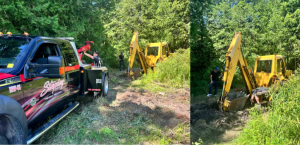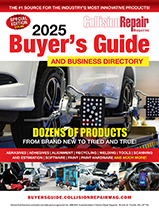Toronto, Ontario — January 1, 2017 — Ontario now has new requirements under the Consumer Protection Act, Highway Traffic Act and the Repair and Storage Liens Act. According to the government of Ontario, the changes are intended to increase consumer protection and road safety in the towing and vehicle storage sectors. The new requirements went into effect on January 1, 2017.
Various parts of the new requirements fall under the Consumer Protection Act, Highway Traffic Act and the Repair and Storage Liens Act.
All tow truck companies must hold a Commercial Vehicle Operators Registration (CVOR). License plates will not be renewed without a valid CVOR number and any offending companies will be subject to fines. The Ministry of Transport has announced a special education period to allow operators who did not have one to obtain a CVOR. Please click here for more information on this process.
Changes to the Consumer Protection Act (CPA) now require towing and storage service providers to:
– Get permission from a consumer or someone acting on behalf of the consumer (e.g., in the event a consumer has been removed from the scene of an accident) before providing or charging for towing and storage services.
– Record the name and contact information of the consumer or the person giving the authorization, along with the date and time of authorization.
– Disclose certain information, in writing, such as the provider’s business name, contact information, and address where the vehicle will be towed.
– Make a current statement of rates available at all business premises, on a website (if one is maintained) in a form that can be reproduced, and give a copy to any person upon request.
– Provide an itemized invoice, listing services provided, the cost for each service and the total cost before demanding or receiving payment.
– Accept credit card payments from consumers (and not insist on cash only).
– Provide a consumer (or someone acting on their behalf) with access to the towed vehicle, at no charge, so that they may remove personal property between 8 a.m. and 5 p.m. on business days.
– Prohibit tow and storage providers from recommending repair and storage facilities, legal service providers or health care service providers, unless a consumer or a person acting on their behalf specifically asks, or the provider offers to make a recommendation and that person agrees.
– Disclose to a consumer whether the provider is getting a financial reward or incentive for towing a vehicle to a particular storage or repair shop.
– Establish minimum insurance coverage including general liability insurance of $2 million, customer vehicle insurance of $100,000 and $50,000 cargo insurance.
– Maintain authorization and disclosure records, invoices, copies of insurance policy, and statements of rates for three years.
Exemptions to the above may be made under certain circumstances. For example, some of the disclosure and record keeping requirements are not needed when services are provided under an existing agreement, such as tows performed for members of the Canadian Automobile Association (CAA). In addition, a limited number of the new rules will apply when a vehicle is towed and stored for law enforcement purposes or detained or impounded under other statutes, regulations or municipal by-laws, or as a result of a lawful power of seizure. The new regulation will protect the consumer, for example, by requiring the provider to make available publicly a current statement of rates, post identifiers and other information, and provide the consumer with the option to pay by credit card.
The maximum amount of a lien for towing and storage services may alos be subject to restrictions under the CPA. A towing and storage provider cannot charge a greater amount just because the cost is to be paid by an insurer or another third party, or is being impounded or detained for law enforcement purposes. Please note that this rule does not apply in the case of law enforcement, if there is an agreement in place that contains terms of payment.
If an authorization includes an estimate, the amount charged may not exceed it by more than 10 per cent. However, the consumer or a person acting on their behalf can agree to change the estimate if they require additional or different services.



















